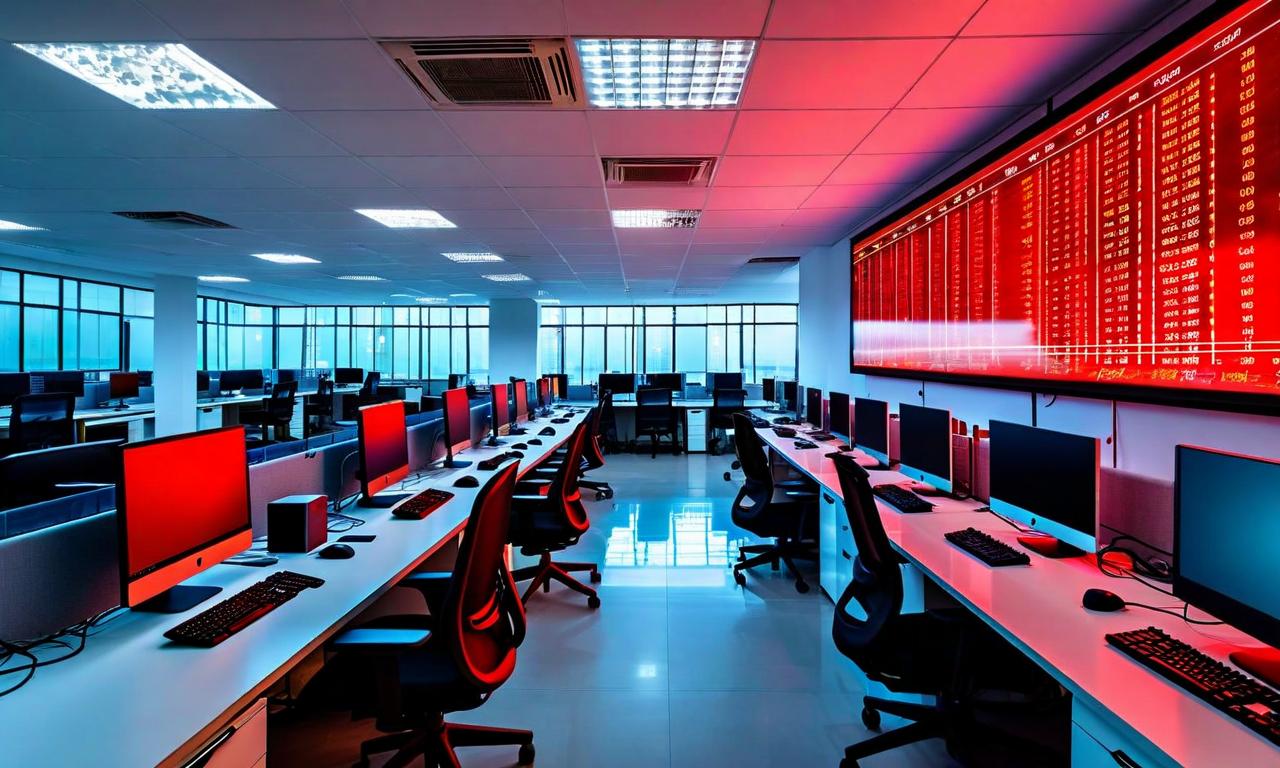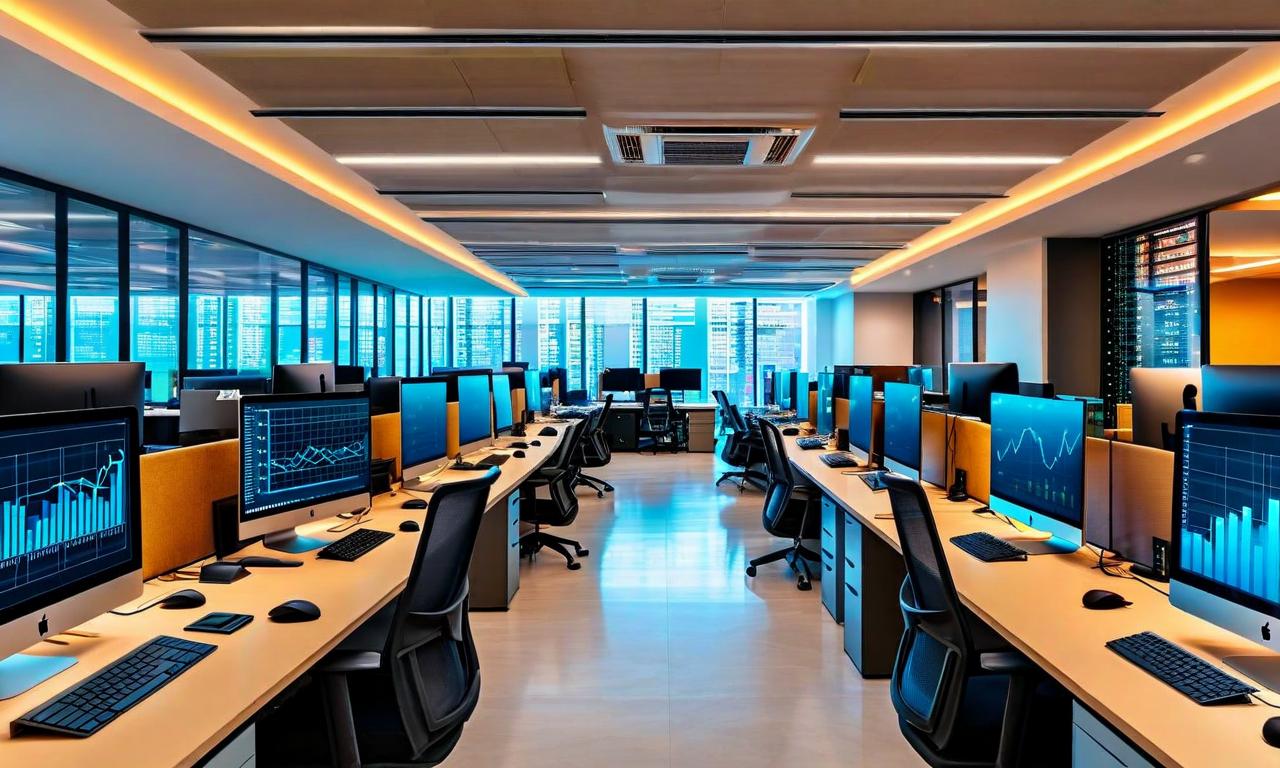Indian IT Stocks Slump on H-1B Visa Fee Hike; Infosys Completes German Subsidiary Merger
Indian IT stocks declined for the fourth consecutive day following the Trump administration's announcement of a $100,000 one-time fee on H-1B visas. The BSE IT index dropped 1.10% to 34,149.55, with major companies like Infobeans Technologies, TCS, and Hexaware Technologies experiencing significant losses. Since last Friday, five major IT companies have collectively lost Rs 1,36,387.50 crore in market capitalization. The Nifty IT index has fallen more than 6% this week. The new visa fee is particularly concerning for Indian IT companies, as Indian professionals account for over 70% of H-1B visa holders. Amidst the market turmoil, Infosys announced the completion of a merger between two of its wholly-owned step-down subsidiaries in Germany.

*this image is generated using AI for illustrative purposes only.
Indian IT stocks continued their downward trend for the fourth consecutive day, reacting to the Trump administration's announcement of a $100,000 one-time fee on H-1B visas. The sector faced significant pressure, with major companies experiencing notable declines in their stock prices.
Market Performance
The BSE IT index dropped 1.10% to 34,149.55, reflecting the overall negative sentiment in the sector. Key players in the Indian IT landscape saw substantial losses:
| Company | Change |
|---|---|
| Infobeans Technologies | -2.64% |
| Tata Consultancy Services (TCS) | -2.50% |
| Hexaware Technologies | -1.91% |
The broader market also felt the impact, with the BSE Sensex falling 555.95 points to 81,159.68 and the NSE Nifty dropping 166.05 points to 24,890.85.
Cumulative Impact
The effect of this policy change has been severe on the valuations of major IT firms:
- Since last Friday, five major IT companies have collectively lost Rs 1,36,387.50 crore in market capitalization.
- TCS, the industry leader, saw an erosion of Rs 75,798.93 crore in its market value.
- Infosys faced a decline of Rs 23,119.19 crore in its market capitalization.
The Nifty IT index has plummeted more than 6% this week, underscoring the sector-wide impact of the visa fee hike.
H-1B Visa Concerns
The new $100,000 one-time fee on H-1B visas is particularly concerning for Indian IT companies, as Indian tech professionals account for over 70% of H-1B visa holders. This additional cost could significantly impact the operational expenses and hiring strategies of these firms in their U.S. operations.
Infosys Corporate Update
Amidst the market turmoil, Infosys announced the completion of a merger between two of its wholly-owned step-down subsidiaries. As per the company's LODR filing:
- Infosys Germany GmbH and Blitz 24-893 SE have merged.
- The merger was completed on September 24.
- The resulting entity is now known as Infosys Germany SE.
This corporate restructuring in Europe comes at a time when the company, along with its peers, is facing challenges in the U.S. market due to the visa policy changes.
Outlook
The IT sector's performance in the coming days will likely be closely watched by investors and analysts. The industry may need to reassess its strategies for global operations, particularly in the United States, in light of the new H-1B visa fees. Meanwhile, corporate actions like Infosys's European subsidiary merger indicate that companies are continuing to optimize their global structures amidst these challenges.



































